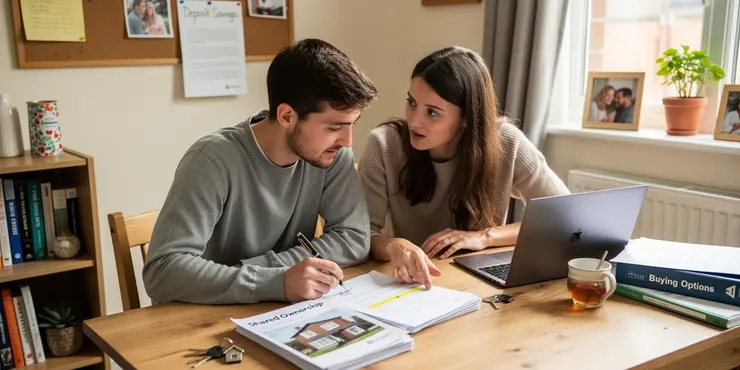
Find Help
More Items From Ergsy search
-
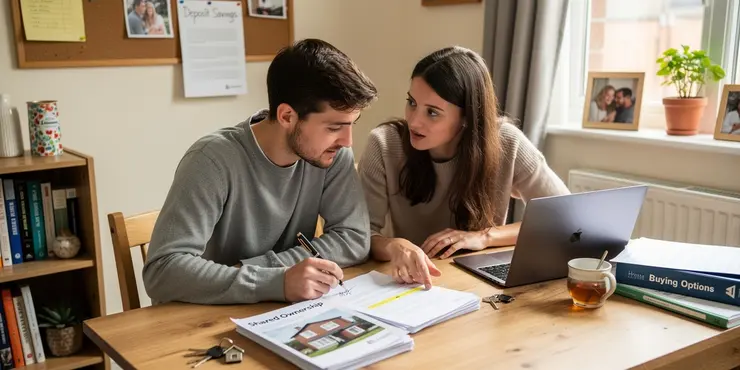
How does Stamp Duty affect shared ownership properties?
Relevance: 100%
-

What is Stamp Duty in the UK?
Relevance: 66%
-

When is Stamp Duty payable in the UK?
Relevance: 65%
-
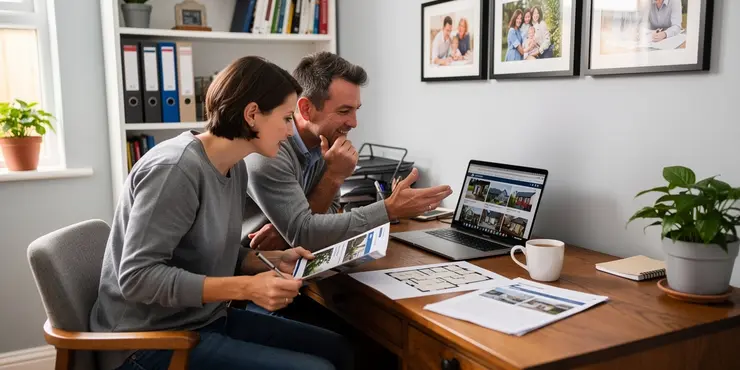
What properties are exempt from Stamp Duty?
Relevance: 65%
-
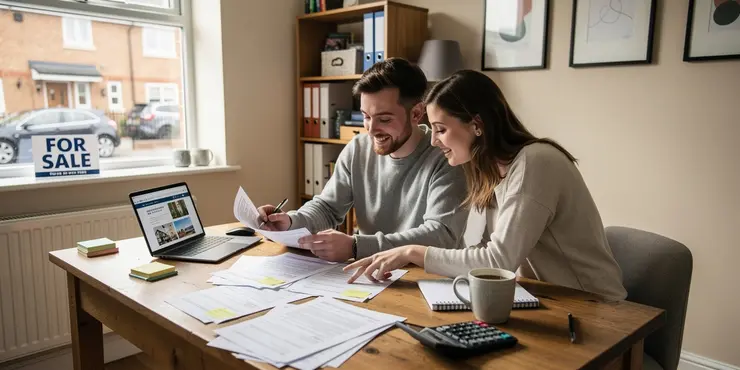
Is there a Stamp Duty exemption for first-time buyers in the UK?
Relevance: 64%
-

Are there different rates of Stamp Duty in the UK?
Relevance: 63%
-
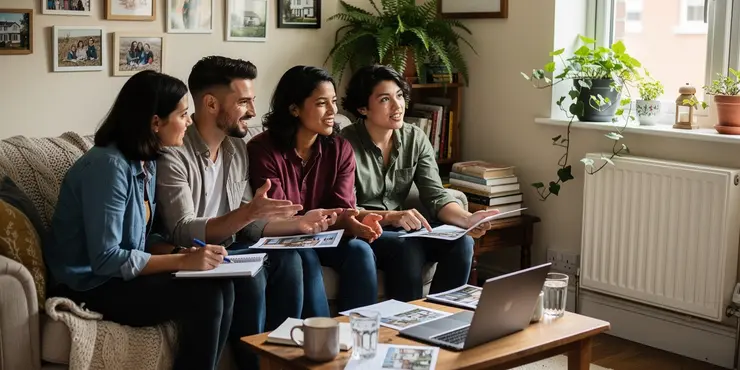
How is Stamp Duty calculated in the UK?
Relevance: 63%
-

What is the current threshold for Stamp Duty in the UK?
Relevance: 62%
-
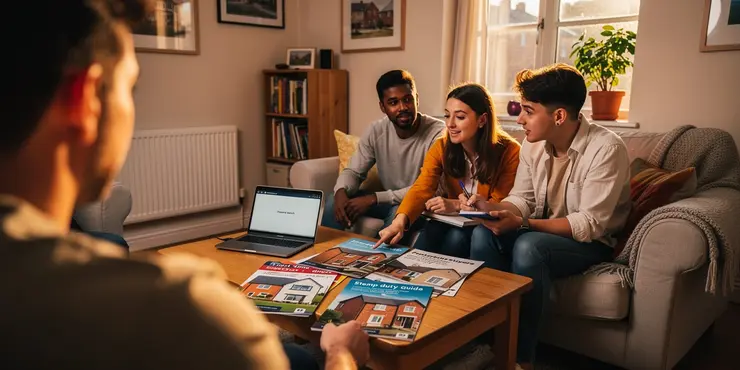
Who pays Stamp Duty in the UK?
Relevance: 61%
-

Can businesses be charged Stamp Duty?
Relevance: 60%
-

Why do we pay Stamp Duty?
Relevance: 59%
-

How do I pay Stamp Duty in the UK?
Relevance: 57%
-

What was the Stamp Duty holiday in the UK?
Relevance: 57%
-
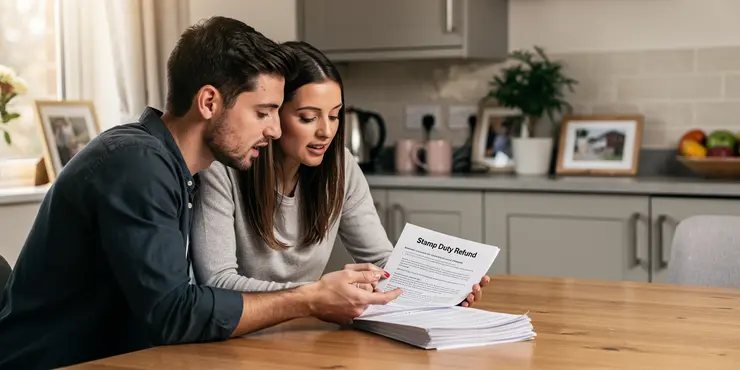
Can Stamp Duty be refunded in the UK?
Relevance: 55%
-

Can Stamp Duty be included in a mortgage in the UK?
Relevance: 55%
-
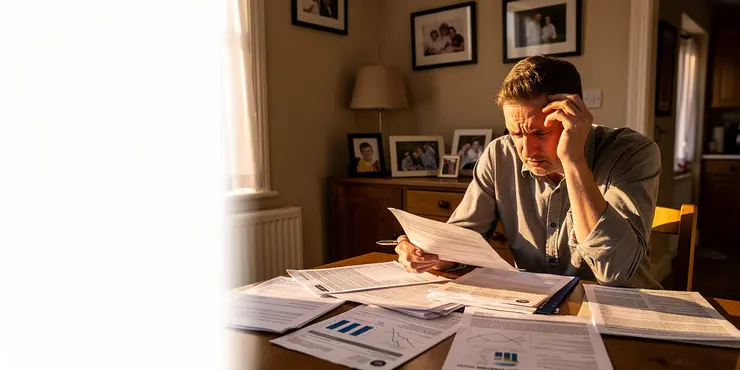
Is there a penalty for late payment of Stamp Duty in the UK?
Relevance: 54%
-

What about Stamp Duty in Wales?
Relevance: 53%
-

First Time Buyer UK - Own Outright vs Help to Buy vs Shared Ownership
Relevance: 53%
-
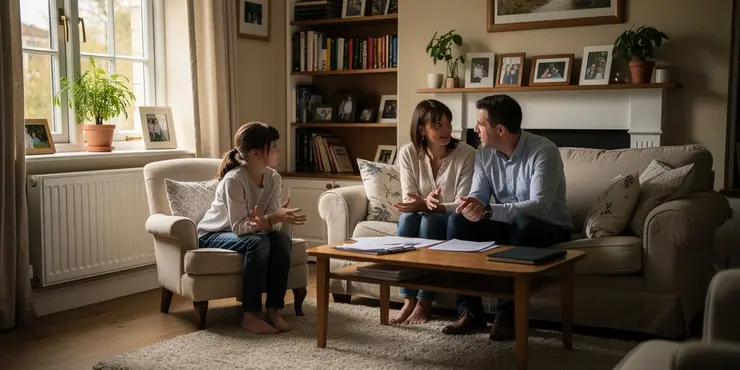
What is Stamp Duty Land Tax (SDLT)?
Relevance: 52%
-
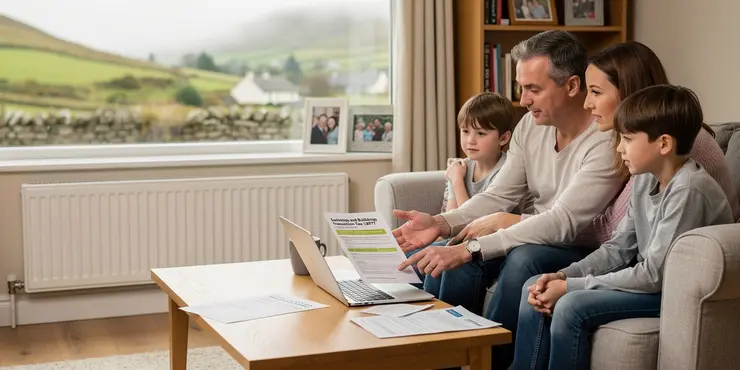
Does Scotland have a different Stamp Duty system?
Relevance: 47%
-

Rising Property Prices Fuel Concerns Over First-Time Buyer Accessibility
Relevance: 28%
-
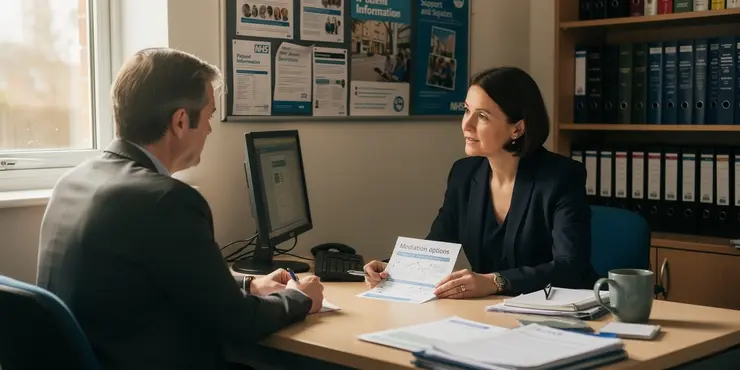
What are some common outcomes of property litigation?
Relevance: 25%
-

What types of disputes are involved in property litigation?
Relevance: 25%
-

How do I calculate the gain on my property sale?
Relevance: 24%
-
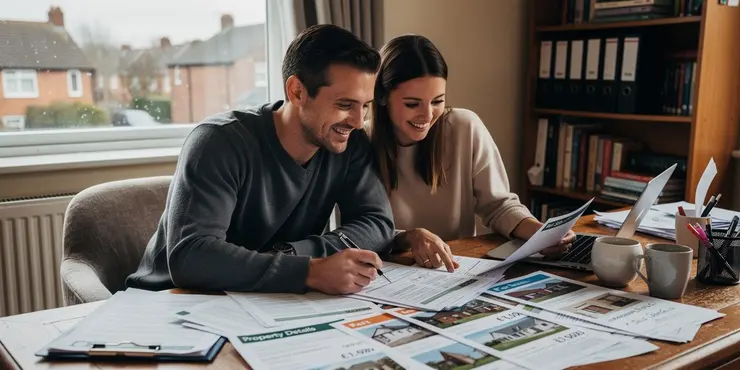
Are there any discounts for multiple property purchases?
Relevance: 24%
-
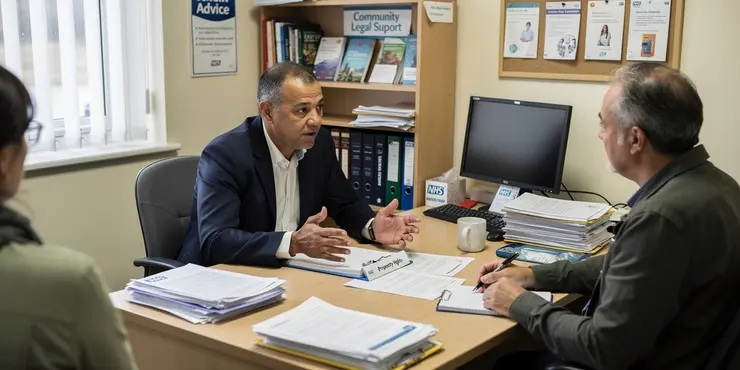
What is adverse possession in property law?
Relevance: 24%
-
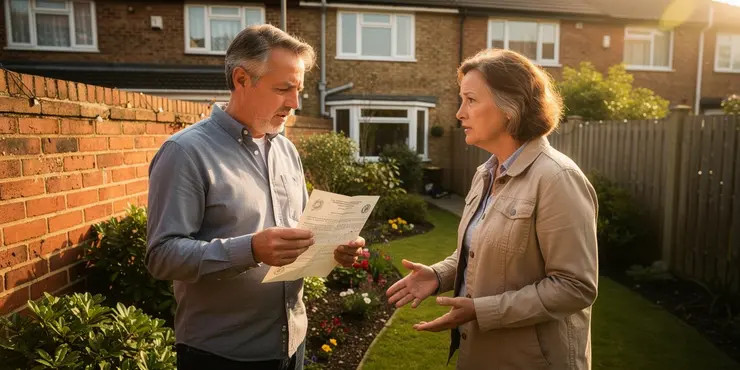
What role do property deeds play in boundary disputes?
Relevance: 24%
-

What is property litigation?
Relevance: 23%
-

Can a company refuse to register a share transfer?
Relevance: 23%
-

Do gig workers have intellectual property rights over their work?
Relevance: 23%
-

What tax rate applies to capital gains from property sales?
Relevance: 23%
-

What is the fiduciary duty of directors to shareholders?
Relevance: 22%
-
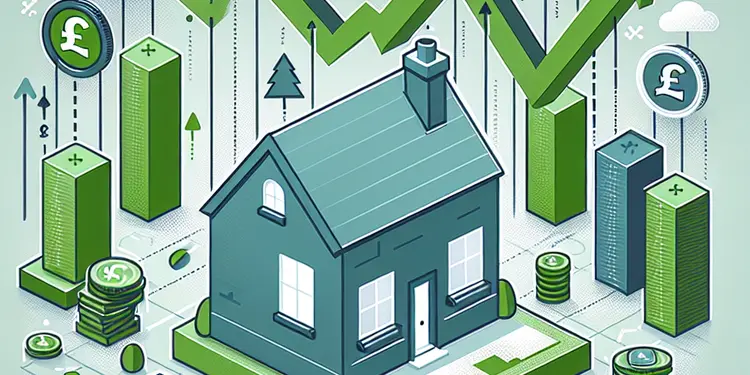
How can I reduce my CGT liability on a property sale?
Relevance: 22%
-

Will I be in a shared or single cell?
Relevance: 21%
-

Why might someone need a property litigator?
Relevance: 21%
-
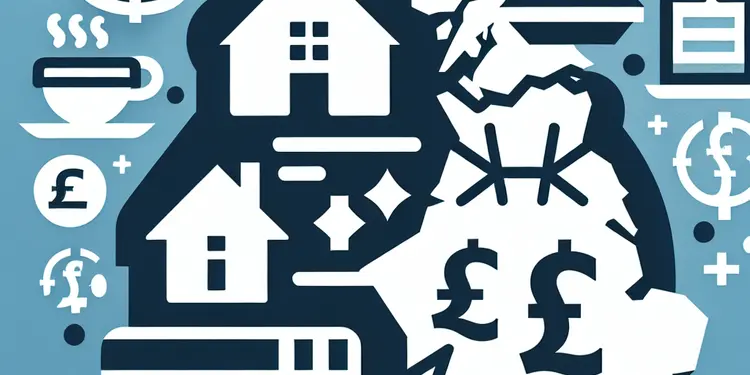
Is there any relief available for CGT on property disposals?
Relevance: 21%
-
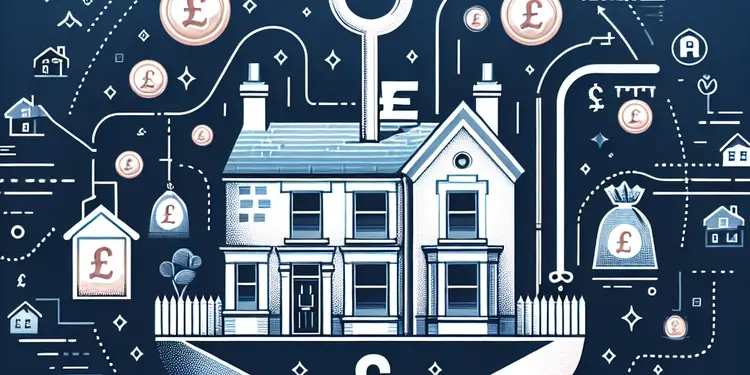
Do I need to pay CGT if I gift a property?
Relevance: 21%
-

What does 'fiduciary duty' mean in pension advice?
Relevance: 20%
-

What is receiving stolen property?
Relevance: 20%
-

Which property sales are exempt from CGT?
Relevance: 20%
Understanding Stamp Duty
Stamp Duty Land Tax (SDLT) is a tax paid on property purchases in England and Northern Ireland. The rate of this tax is dependent on the property price, type of buyer, and the buyer's circumstances, such as whether they are a first-time buyer. When it comes to shared ownership properties, the application of SDLT becomes more intricate and requires specific understanding.
Stamp Duty on Shared Ownership Properties
Shared ownership schemes allow buyers to purchase a portion of a property while renting the remaining share from a housing association. This scheme is particularly popular among first-time buyers as it provides a more affordable way to enter the property market. However, knowing how Stamp Duty applies to these is essential to avoid unexpected costs.
Two Ways to Pay
For shared ownership properties, buyers have the option to pay Stamp Duty in two ways. The first method is to pay SDLT only on the initial share purchased. This means that buyers only pay Stamp Duty on the portion of the property they are buying. The advantage here is a smaller initial payment. However, SDLT will also be due each time the buyer increases their share in the property, a process known as staircasing.
The second option is to make a one-time payment on the full market value of the property at the time of the initial purchase. Known as the 'market value election,' this approach might result in a larger upfront cost but can eliminate additional Stamp Duty charges when the buyer eventually increases their ownership stake in the property.
Potential Benefits for First-Time Buyers
First-time buyers purchasing a shared ownership property may benefit from Stamp Duty relief if they opt for the market value election. Current SDLT rules allow first-time buyers to claim relief on properties valued up to a certain threshold, reducing the amount of tax payable. This relief can significantly decrease the financial burden, making property ownership more accessible.
Considerations and Analysis
Buyers must carefully consider their options when choosing how to pay Stamp Duty on shared ownership properties. Opting for the market value election could be beneficial in the long run, particularly if the property is likely to appreciate in value or if the buyer plans to increase their share significantly.
Conversely, buyers who do not plan to increase their ownership might find paying SDLT on their initial share more cost-effective. Additionally, when considering the potential need to pay SDLT multiple times during staircasing, buyers must account for how these payments might affect their overall property costs.
Conclusion
In conclusion, Stamp Duty affects shared ownership properties in unique ways, providing buyers with varying strategies to manage their payments. It is advisable for buyers to consult with financial advisors or conveyancers familiar with SDLT rules specific to shared ownership to make informed decisions that best suit their financial situations and future property plans.
Understanding Stamp Duty
Stamp Duty Land Tax (SDLT) is a tax you pay when you buy a house or flat in England and Northern Ireland. How much tax you pay depends on how much the property costs and if you have bought a house before. If you are buying a shared ownership property, the tax can be a bit more complicated.
Stamp Duty on Shared Ownership Properties
Shared ownership means you buy part of a house and pay rent on the rest. It’s a good option for people buying a house for the first time because it costs less money upfront. But you need to know how the tax works to avoid surprises.
Two Ways to Pay
When buying a shared ownership property, you can pay the Stamp Duty in two ways. First, you can pay tax only on the part you buy. This means a smaller payment at the start. But each time you buy more of the house, called staircasing, you will owe more tax.
The second option is to pay tax on the whole value of the house at the start. This costs more money in the beginning but means you won’t pay more tax if you buy a bigger share later.
Potential Benefits for First-Time Buyers
If you’re buying your first home, you might not have to pay as much tax. There are rules that help first-time buyers pay less tax on homes up to a certain price. This makes buying a home easier.
Considerations and Analysis
Think carefully about how to pay the tax when buying a shared ownership home. Paying the tax on the whole house now might help if you want to own a bigger part of the house later.
If you don’t plan to buy more of the house, paying tax only on the part you buy might be cheaper. But remember, you could end up paying more tax later if you buy more shares of the house.
Conclusion
Stamp Duty can be tricky with shared ownership. It’s smart to talk to a financial advisor or a lawyer who knows about these taxes. They can help you make the best choice for your money and future plans.
Frequently Asked Questions
What is Stamp Duty in the context of property?
Stamp Duty is a tax that buyers pay when purchasing property or land in certain countries, including the UK.
Does Stamp Duty apply to shared ownership properties?
Yes, Stamp Duty can apply to shared ownership properties, but there are specific rules and reliefs available.
What are shared ownership properties?
Shared ownership properties are part of a scheme that allows people to buy a share of a property and pay rent on the remaining share, typically aimed at helping first-time buyers.
How is Stamp Duty calculated on shared ownership properties?
You can pay Stamp Duty either on the full market value of the property or just on the share you are purchasing initially.
What is the full market value election in Stamp Duty?
The full market value election is an option to pay Stamp Duty on the total market value of the property instead of just the initial share purchased.
Is there any Stamp Duty relief for first-time buyers in shared ownership schemes?
Yes, first-time buyers may be eligible for Stamp Duty relief, allowing them to pay reduced or no tax on properties up to a certain value.
What happens if you staircase in a shared ownership property?
When staircasing (buying more shares), additional Stamp Duty might be payable based on the price of the additional share purchased.
Do I need to pay Stamp Duty on rent in shared ownership?
Stamp Duty is generally not payable on the rent for shared ownership properties, it is calculated based on the share purchased.
Can Stamp Duty be deferred in shared ownership purchases?
If you choose to pay Stamp Duty based on the share acquired, further amounts may be due upon staircasing, potentially deferring some of the tax.
Is there an advantage to paying Stamp Duty on the full market value?
Paying on the full value can be advantageous if you plan to staircase to 100% ownership, as it may avoid further Stamp Duty liabilities.
Can Stamp Duty rules for shared ownership change?
Yes, Stamp Duty rules and rates can change with new government policies, so it's important to check current regulations.
Do housing associations provide guidance on Stamp Duty for shared ownership?
Yes, housing associations typically provide guidance and advice on the process, including Stamp Duty implications.
Are there different Stamp Duty rates for different regions?
Stamp Duty may vary by region such as between England, Scotland (known as LBTT), or Wales (known as LTT), each having its own rules.
What documents do I need for Stamp Duty calculations?
You'll need the property price, your share percentage, and other related property documents for accurate calculations.
How does the 3% surcharge apply to shared ownership?
The 3% additional Stamp Duty surcharge can apply if you own another property, but might not apply if this is your first home.
Is Stamp Duty payable if I inherit a shared ownership property?
Stamp Duty is generally not payable on inherited properties unless you purchase additional shares.
Do joint purchases in shared ownership affect Stamp Duty liability?
Stamp Duty in joint purchases is calculated based on the property as a whole, but individual circumstances can affect liability.
Can I reclaim Stamp Duty if I sell my existing property soon after buying a shared ownership one?
In some cases, you can reclaim the 3% surcharge if your previous main residence is sold within a specific time frame.
How does a shared ownership lease affect Stamp Duty?
The lease term can be significant for Stamp Duty considerations, especially applicable to leasehold properties.
Should I consult a solicitor for Stamp Duty on shared ownership?
Yes, consulting a solicitor or property advisor is recommended for understanding Stamp Duty obligations for shared ownership.
What is Stamp Duty when buying a house?
Stamp Duty is a tax. You pay it when you buy a house. It can cost a lot of money. You pay it to the government.
If you need help, ask someone you trust. You can also use calculators online to see how much it might cost.
Stamp Duty is a tax. People pay it when they buy a house or land in some countries, like the UK.
Reading tip: You can use a ruler or your finger to help you keep your place while reading.
Do you have to pay Stamp Duty on shared ownership homes?
If you buy a shared ownership home, you might have to pay Stamp Duty. Stamp Duty is a tax you pay when you buy a house.
Here’s what you need to know:
- Stamp Duty is money you pay to the government when you buy a house.
- A shared ownership home means you buy part of the house and rent the rest.
- You might have to pay Stamp Duty depending on how much of the house you buy.
Tips to help you:
- Talk to a person who knows about buying houses. They can help you understand Stamp Duty.
- You can use a Stamp Duty calculator online to see how much you might pay.
- Look for advice from a housing expert or financial advisor.
Yes, you might have to pay Stamp Duty when you buy a shared ownership home. But there are special rules that might help you pay less.
What are shared ownership homes?
Shared ownership homes mean you buy part of a house. You can live there and pay rent on the part you don't own. It's like sharing the house with someone else.
Support tools to help you more:
- Use pictures: Draw or find pictures of houses to understand more.
- Ask questions: Talk to someone you trust for more help.
- Read slowly: Take your time to understand each word.
Shared ownership homes are a way to help people buy their first home. You buy a part of the home and pay rent on the rest.
How do you work out Stamp Duty on shared ownership homes?
Let's learn how to find out the cost of Stamp Duty if you share a home with someone else. Stamp Duty is a tax you pay when you buy a home.
If you have questions or need help, you can ask a friend or someone who knows about buying homes. You can also use a Stamp Duty calculator online. This tool can help make things easier.
You have to pay something called Stamp Duty when you buy a house. You can pay it in two ways:
1. You can pay it on the whole price of the house.
2. Or, you can pay it just on the piece of the house you are buying right now.
What is the full market value election in Stamp Duty?
Stamp Duty is a tax you pay when you buy a house or land.
Full market value election means choosing to pay tax based on the full price of the property. This can happen when you buy a house from a person you know well, like a friend or family member.
It is important to know how much tax you need to pay. You can use a calculator online or talk to an expert to help you understand.
The full market value election is a choice. You can pay Stamp Duty on the whole value of the property, not just the part you buy first.
Can first-time buyers in shared ownership get help with Stamp Duty?
If you are buying a home for the first time, you might not have to pay as much tax. This is called Stamp Duty relief. It means you pay less or no tax when buying a house that costs less than a certain amount.
What happens if you buy more of your shared house?
When you buy more parts of your home, called "staircasing," you might have to pay extra tax. This extra tax is called Stamp Duty. The amount you pay depends on the price of the new part you buy.
Do I have to pay extra tax when I rent in shared ownership?
When you buy a shared ownership home, you usually do not pay Stamp Duty on the rent. You only pay it on the part of the home you buy.
Can you pay Stamp Duty later when buying a shared ownership home?
If you pay Stamp Duty for the part you buy, you might have to pay more later if you buy more of the property. This means you can wait to pay some of the tax until later.
Is it good to pay Stamp Duty on the full price of a home?
Paying the full amount can be good if you want to own 100% of your home. This way, you might not have to pay Stamp Duty taxes again.
Can the rules for Stamp Duty on shared ownership change?
Yes, Stamp Duty rules and rates can change when the government makes new rules. It is important to check what the current rules are.
Can housing associations help with Stamp Duty for shared ownership?
Housing associations can help you understand Stamp Duty when you buy a shared ownership home.
If you need help, you can:
- Talk to the housing association staff.
- Look at the information they give you.
- Use online tools to learn about Stamp Duty.
Yes, housing groups can help you understand the steps. They can also give advice about taxes like Stamp Duty.
Do different places have different Stamp Duty rates?
Stamp Duty might cost more or less money depending on where you are. It can change in different towns, cities, or countries.
A simple way to find out the right Stamp Duty rate for your area is using an online calculator. Also, you can ask someone you trust to help you understand.
Stamp Duty is a tax you pay when you buy a house. This tax is different in each place. In England, it's called Stamp Duty. In Scotland, it has a different name: LBTT. In Wales, it's called LTT. Each place has its own rules for this tax.
What papers do I need for Stamp Duty calculations?
To work it out, you need to know how much the property costs, the percentage that is your share, and some other papers about the property. These papers help you get the right answer.
How does the 3% extra charge work if you share ownership?
If you own part of a home, there might be an extra charge of 3% when you buy more shares. This means you pay a little more money in some cases.
Lots of people share ownership to help buy a home.
If this seems tricky, ask for help from someone. You can also use speaking tools or pictures to understand better.
If you buy a home and already own another one, you might have to pay extra money called a "Stamp Duty surcharge." If you are buying your first home, you might not have to pay this extra money.
To make reading easier, you can use tools that read text out loud or highlight words as you read. You can also ask someone to help explain things you don't understand.
Do I need to pay Stamp Duty if I inherit part of a house?
You don't usually pay Stamp Duty when someone leaves you a house or flat. You only pay if you buy more of it.
Do two people buying a home together have to pay Stamp Duty?
When two people buy a house together, they have to pay something called Stamp Duty. It is money you must pay when buying a house. The amount is based on the total price of the home. But, sometimes the people buying the house might have special reasons that change how much they pay.
If you find reading hard, you can use tools like audio books or have someone read to you. Taking breaks and asking for help from a teacher or friend can also be a good idea.
Can I get Stamp Duty money back if I sell my old home soon after buying a part of a new one?
Stamp Duty is a tax you pay when you buy a home. If you buy a part of a new home and then sell your old home soon, you might be able to get some money back. This is called reclaiming Stamp Duty.
Here are some helpful steps:
- Check with a tax expert or use online tools to see if you can get money back.
- Keep all your papers from buying and selling the homes.
- Ask someone you trust for help if things get confusing.
Sometimes, you can get back the extra 3% money if you sell your old home in a certain amount of time.
How does a shared ownership lease affect Stamp Duty?
If you are buying a home through shared ownership, you pay Stamp Duty. This is a tax when you buy property. With shared ownership, you only buy part of the home. Check if you need to pay Stamp Duty now or later.
Use a Stamp Duty calculator or ask someone to help you figure out how much you need to pay. A calculator can tell you the amount quickly.
The length of time you rent a place is important for paying Stamp Duty. This is important when you rent a property.
Do I need to ask a lawyer about Stamp Duty for owning part of a home?
Yes, it is a good idea to talk to a lawyer or a property expert. They can help you understand Stamp Duty for shared ownership homes.
Useful Links
This website offers general information and is not a substitute for professional advice.
Always seek guidance from qualified professionals.
If you have any medical concerns or need urgent help, contact a healthcare professional or emergency services immediately.
Some of this content was generated with AI assistance. We’ve done our best to keep it accurate, helpful, and human-friendly.
- Ergsy carfully checks the information in the videos we provide here.
- Videos shown by Youtube after a video has completed, have NOT been reviewed by ERGSY.
- To view, click the arrow in centre of video.
- Most of the videos you find here will have subtitles and/or closed captions available.
- You may need to turn these on, and choose your preferred language.
- Go to the video you'd like to watch.
- If closed captions (CC) are available, settings will be visible on the bottom right of the video player.
- To turn on Captions, click settings .
- To turn off Captions, click settings again.
More Items From Ergsy search
-

How does Stamp Duty affect shared ownership properties?
Relevance: 100%
-

What is Stamp Duty in the UK?
Relevance: 66%
-

When is Stamp Duty payable in the UK?
Relevance: 65%
-

What properties are exempt from Stamp Duty?
Relevance: 65%
-

Is there a Stamp Duty exemption for first-time buyers in the UK?
Relevance: 64%
-

Are there different rates of Stamp Duty in the UK?
Relevance: 63%
-

How is Stamp Duty calculated in the UK?
Relevance: 63%
-

What is the current threshold for Stamp Duty in the UK?
Relevance: 62%
-

Who pays Stamp Duty in the UK?
Relevance: 61%
-

Can businesses be charged Stamp Duty?
Relevance: 60%
-

Why do we pay Stamp Duty?
Relevance: 59%
-

How do I pay Stamp Duty in the UK?
Relevance: 57%
-

What was the Stamp Duty holiday in the UK?
Relevance: 57%
-

Can Stamp Duty be refunded in the UK?
Relevance: 55%
-

Can Stamp Duty be included in a mortgage in the UK?
Relevance: 55%
-

Is there a penalty for late payment of Stamp Duty in the UK?
Relevance: 54%
-

What about Stamp Duty in Wales?
Relevance: 53%
-

First Time Buyer UK - Own Outright vs Help to Buy vs Shared Ownership
Relevance: 53%
-

What is Stamp Duty Land Tax (SDLT)?
Relevance: 52%
-

Does Scotland have a different Stamp Duty system?
Relevance: 47%
-

Rising Property Prices Fuel Concerns Over First-Time Buyer Accessibility
Relevance: 28%
-

What are some common outcomes of property litigation?
Relevance: 25%
-

What types of disputes are involved in property litigation?
Relevance: 25%
-

How do I calculate the gain on my property sale?
Relevance: 24%
-

Are there any discounts for multiple property purchases?
Relevance: 24%
-

What is adverse possession in property law?
Relevance: 24%
-

What role do property deeds play in boundary disputes?
Relevance: 24%
-

What is property litigation?
Relevance: 23%
-

Can a company refuse to register a share transfer?
Relevance: 23%
-

Do gig workers have intellectual property rights over their work?
Relevance: 23%
-

What tax rate applies to capital gains from property sales?
Relevance: 23%
-

What is the fiduciary duty of directors to shareholders?
Relevance: 22%
-

How can I reduce my CGT liability on a property sale?
Relevance: 22%
-

Will I be in a shared or single cell?
Relevance: 21%
-

Why might someone need a property litigator?
Relevance: 21%
-

Is there any relief available for CGT on property disposals?
Relevance: 21%
-

Do I need to pay CGT if I gift a property?
Relevance: 21%
-

What does 'fiduciary duty' mean in pension advice?
Relevance: 20%
-

What is receiving stolen property?
Relevance: 20%
-

Which property sales are exempt from CGT?
Relevance: 20%


